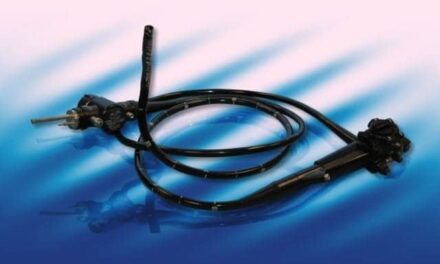By Julie Kirst 
“We as an industry really have to think globally. Possibly have central resources for service manuals, troubleshooting references, and best practices.”
This quote, from a clinical/biomedical engineering manager who responded to 24×7’s 2012 Compensation Survey, could not be more relevant. The global perspective in today’s world turns a ship into a hospital that provides medical care to impoverished areas and an airplane into a flying eye hospital, and it urges biomeds to take equipment and their expertise around the globe to train other biomeds with limited resources.
There could not be a better time than now to harness the advantages of globalization and instant information to create centralized resources that can empower clinical/biomedical engineers both far away and at home.
As the world opens its doors, members of the health care technology management profession can tap into innovative practices that can help streamline workflows and efficiencies in troubleshooting and, according to the results of our recent survey, this is needed more than ever.
Results from this year’s survey indicated that the trend of the last couple of years of “doing more with less” continues and represents a large part of the respondents’ frustration. While a few facilities noted they finally got approval to bring in more help, many departments still faced the challenge of diminished budgets—and those respondents feel stretched beyond their limits as they work to cover service on more equipment at more facilities, while taking on extra tasks.
The time/work crunch was felt all the way to the top, as noted by one director, who said, “There is not adequate time for tasks and projects. There is never enough time, but if given more time I would find more to improve upon. Perfection is what we work toward.”
What is beneficial to note is that in addition to the solution of hiring more people to create a smoother workload and greater job satisfaction, others offered suggestions to mitigate this problem. For example, a number of respondents cited good leadership as a reason for the balance they found, while others expressed a need for leadership that could propel their department forward. Said one respondent, “Department management and supervisors need training in management, leadership, and people skills. It’s not about numbers. It’s about leading people. The, ‘that’s the way we have always done it’ mentality cannot exist in an up-to-date, efficient environment. Workload can be eased by adding more people and by allowing more efficient and cost-effective methods to develop.”
As I read the numerous comments this year, I noticed a decided lack of the usual remarks about how the meaningful work made up for the pressures. Perhaps it is all taking its toll, which could account for the comments this year about concerns for patient safety—that have not been very present in years past—that correlated with time pressures and workload.
This year, as you read the results of the survey, I hope you will think about how to implement ideas, such as a centralized resource of troubleshooting tips and best practices to help you and your colleagues master some of the time wasters you may be plagued with. 24×7’s blog and articles are some of the resources available that provide tips and guidelines to assist you in your work.
Despite the challenges you all face, what I walk away with every year is a sense of the dedication you all have to your profession. Your commitment inspires me, and on behalf of those of us at 24×7, we thank each of you who took the time to participate, as well as all of you who give so much each day. As one biomed said, “Where else can you find a job with so much diversification? There are many challenges in this career and many satisfactions. It is not just 8 hours a day or 40 hours a week. It’s a way of life.” 24×7 December 2012
Julie Kirst is the chief editor of 24×7





